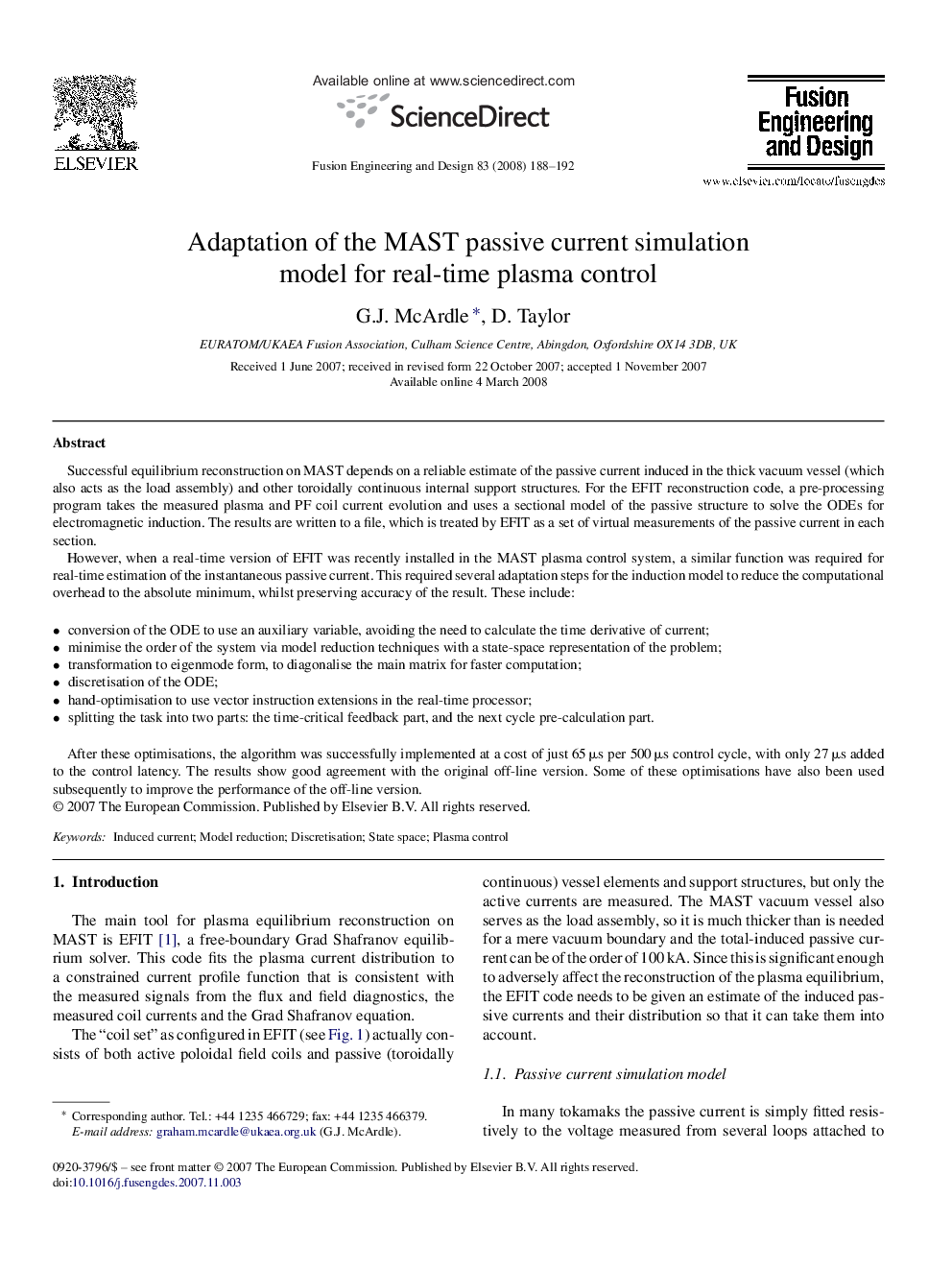| Article ID | Journal | Published Year | Pages | File Type |
|---|---|---|---|---|
| 272914 | Fusion Engineering and Design | 2008 | 5 Pages |
Successful equilibrium reconstruction on MAST depends on a reliable estimate of the passive current induced in the thick vacuum vessel (which also acts as the load assembly) and other toroidally continuous internal support structures. For the EFIT reconstruction code, a pre-processing program takes the measured plasma and PF coil current evolution and uses a sectional model of the passive structure to solve the ODEs for electromagnetic induction. The results are written to a file, which is treated by EFIT as a set of virtual measurements of the passive current in each section.However, when a real-time version of EFIT was recently installed in the MAST plasma control system, a similar function was required for real-time estimation of the instantaneous passive current. This required several adaptation steps for the induction model to reduce the computational overhead to the absolute minimum, whilst preserving accuracy of the result. These include:•conversion of the ODE to use an auxiliary variable, avoiding the need to calculate the time derivative of current;•minimise the order of the system via model reduction techniques with a state-space representation of the problem;•transformation to eigenmode form, to diagonalise the main matrix for faster computation;•discretisation of the ODE;•hand-optimisation to use vector instruction extensions in the real-time processor;•splitting the task into two parts: the time-critical feedback part, and the next cycle pre-calculation part.After these optimisations, the algorithm was successfully implemented at a cost of just 65 μs per 500 μs control cycle, with only 27 μs added to the control latency. The results show good agreement with the original off-line version. Some of these optimisations have also been used subsequently to improve the performance of the off-line version.
